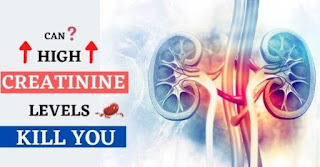Why is PKD A Complicated Disease ?
There is no doubt about the importance of kidneys in the body, they are the filtering unit that excretes all the waste product and excessive water through urine. While we discuss kidney disease, there is a lethal problem that is least discussed and is quite hazardous for the kidneys. Polycystic kidney disease or PKD is a genetic or an inherited disorder that harms the functioning of kidneys from scratch. they form liquid-filled cysts around the kidneys and hamper their normal functioning.
What is Polycystic Kidney Disease or PKD?
The sac-like substances, having a thin wall around them and crammed with fluid, are known as kidney cysts. These sacs are found inside the kidneys or are formed on the wall of the kidneys. These cysts are usually called polycystic kidney cysts or Polycystic renal cysts. When This problem of cysts in kidneys prolong for some time, it is known as polycystic kidney disease or PKD.
Polycystic kidney disease is a genetic disorder where a large group of liquid-filled sacs develop in the kidneys and damage the working of kidneys, eventually leading to kidney failure. These cysts can be of different sizes and could develop in other parts of the body too. Sometimes it is seen that in PKD, the cysts can also develop in the liver or other prone organs.
Polycystic kidney disease is a complicated renal disease, but PKD treatment in Ayurveda provides the perfect cure without dialysis and transplant.
What Are The Symptoms of Polycystic Kidney Disease or PKD?
Kidney Cysts typically do not show any symptoms, a number of the symptoms that are seen within the patients suffering from polycystic kidney disease or PKD are as follows: -
- Noticing blood in the urine.
- High blood pressure or hypertension.
- Blood visible at the time of urination.
- Pain in back and side.
- Severe headaches
- Fever
- Giddiness
- The problem of kidney stone
- UTI or kidney infections
- Kidney failure
- Increase in the size of the abdomen, showing enlargement of kidneys.
- Diabetes or high blood sugar levels.
What Are The Types of Polycystic Kidney Disease or PKD?
Polycystic kidney disease is usually caused due to inherited disorder and has a family history. Typically there are two main types of polycystic kidney disease, and they are: -
1. ADPKD, also known as autosomal dominant polycystic kidney disease
Patients suffering from ADPKD are usually adults. Starting symptoms are found in them between the age of 30 to 40 years. Some children may also suffer from ADPKD and show the symptoms of Polycystic kidney disease after adolescents. In this condition, if one parent is suffering from autosomal dominant polycystic kidney disease, there are 50 percent chances that any of the children, too, would get infected.
2. ARPKD, also known as autosomal recessive polycystic kidney disease
This type of PKD is not as common as ADPKD, in this, the symptoms may appear after the time of birth. Mostly autosomal recessive polycystic kidney disease shows the signs in children after their birth or in early childhood. This is usually caused if both the parents have abnormal genes, which may result in underlying disease in the child. There are 25 percent chances that each child may suffer from ARPKD.
What is The Polycystic Kidney Disease or PKD Treatment in Ayurveda?
Ayurveda balances the three forces of the body, that is, mind, emotions, and spirit. It is often believed that by the transfer of balance in these forces, everything will be cured. PKD treatment in Ayurveda focuses a lot on these natural herbs and plants for treating a patient, instead of using the medicines containing harmful chemicals.
Ayurveda provides some measures and prevention to control the size of kidney cysts, which eventually helps in treating polycystic kidney disease. Some of these remedies are: -
- Do not consume alcohol because it will increase the size of renal sacs within the body.
- Smoking ought to be avoided because it grows cysts in the kidneys.
- Patients suffering from polycystic kidney disease must avoid heavy exercises.
- Doing extra efforts increases the amount of creatinine in the body, which is very harmful to the functioning of kidneys. More creatinine would lead to more waste material in the body, making it difficult for kidneys to filter.
- Consume medicines and drugs only when necessary.
- Keep the blood pressure in control, reduce the intake of sodium in any form, as it affects the working of kidneys.
- Keep a regular check on blood sugar level. Polycystic kidney patients are prone to have diabetes, and it must be controlled in all ways.
What is The Diet For Polycystic Kidney Disease?
Consuming a renal-friendly diet is essential for polycystic kidney patients. Someone suffering from PKD must improve their eating habits by following these simple steps: -
- Add fresh fruits and vegetables to the diet.
- The intake of salt must be reduced.
- Eat grains and pulses in the right amount only.
- Reduce spicy food and fast food from the diet.
- Drink the right amount of water.
PKD treatment in Ayurveda suggests doing yoga and limited physical exercises daily, like walking and cycling.



Comments
Post a Comment